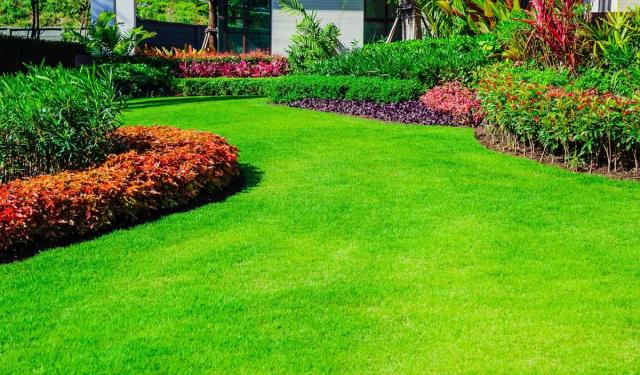Crabgrass is probably the most common weedy grass out there. It is nearly impossible to get rid of entirely, but there are a few things you can do to keep it from becoming a nuisance.
Here are some steps towards preventing and removing crabgrass:
- As with all weeds, the number one crabgrass prevention is maintaining a healthy lawn. Make sure that your grass is thick enough to cover your yard. If the sun cannot contact the soil, crabgrass can't take root.
- Don't mow your grass too low. Crabgrass will take advantage of the increased sunlight at dirt-level. Mow your lawn two and a half to three inches tall.
- Try to remove crabgrass as soon as you see it. Crabgrass is very fertile, and an inconspicuous appearance can quickly turn into a full-blown infestation. Mulch the soil after removing crabgrass. This helps ensure that whatever roots remain don't take seed and ruin your lawn grass later.
Heavily water the area you are weeding before removing the crabgrass. The dampness will loosen up the dirt and make hand removal easier.
- Make sure you get the entire root. Crabgrass is a tenacious weed. In the right conditions, its roots will grow wherever they touch soil.
- Use chemicals as a last resort. There are some herbicides available that will kill crabgrass and other weeds after they've already appeared in your lawn, but be sure to read the label carefully and apply only as directed .
- Pre-emergent chemicals do exist, but it can be difficult to judge the best time to apply these preventive chemicals. If you apply them too early, their effects will fade, and the crabgrass might take hold later. If you apply the chemicals too late, the crabgrass may already be there.
- Always use gloves to protect your hands when gardening, especially when using chemicals. And remember, crabgrass is difficult to ever completely root out. Have reasonable, realistic expectations. Don't stress out about a little crabgrass every now and then.



 Heavily water the area you are weeding before removing the crabgrass. The dampness will loosen up the dirt and make hand removal easier.
Heavily water the area you are weeding before removing the crabgrass. The dampness will loosen up the dirt and make hand removal easier.

